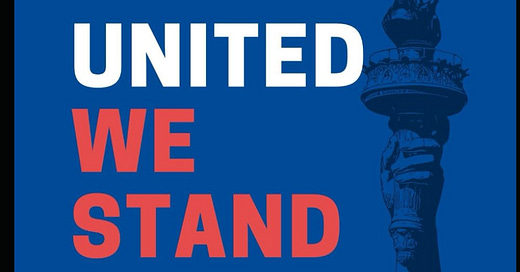Dear [Anonymized],
Your party often claims that their methods are effective, and I respect their dedication to their beliefs. Allow me to share my perspective in English for clarity.
We both aspire to create a world free of war, hunger, and poverty, where everyone has access to food, education, and medical care. This vision is challenging, yet achievable.
When evaluating any war, the critical question is how to end it swiftly with minimal loss and damage. Our stance on supporting, opposing, or ignoring any leader should be guided by this principle.
You may label me a revisionist, sub-reformist, an ultra-radical, or even just an old man. Your youthful beauty allows you the unique experience of discerning intentions and learning to reject unwelcome advances. However, in this discussion, we are exclusively in the political realm. If my views appeal you, then it’s all the better.
Politics is not merely an extension of war, nor is war an extension of politics. Politics is our alternative to conflict, our way to resolve disputes without bloodshed. Yet, politics also determines when and how to fight. This dual role explains why some reject politics, leading to the rise of vanguard parties and, conversely, the success of fascist or well-organized minority parties. Trump is a prime example, though his effectiveness as a fascist is surprisingly limited.
Regarding Trump and Biden, we can agree they are the leading candidates for the U.S. presidency. Which one would lead to fewer wars? In my view, Biden is the better choice. He attempted to withdraw from Afghanistan and is working to prevent further escalation in the Middle East. Biden did not instigate the invasion of Ukraine, nor was he in power when Russia invaded.
This is not to say Biden is flawless. He has faced personal tragedies, with one child deceased and another struggling with addiction and questionable company. These issues reflect on his family’s judgment but do not define his entire character. Critics may call him senile or accuse him of exaggeration; I neither endorse nor dismiss such claims. Any President is a leader of a team. Which leader builds a better team?
My focus on war stems from a desire to understand and avoid it, ensuring we win when it becomes unavoidable.
Trump, in contrast, is irresponsible, unreliable, dishonest, and corrupt. Therefore, I believe we should not support him. Biden, while imperfect, demonstrates reliability, responsibility, and a capacity for negotiation and compromise. These qualities align with our observations. Given our limited options, choosing the lesser evil becomes straightforward.
I invite you to explore my book on this topic, available for free this week:
https://www.amazon.com/United-Stand-Divided-Fall-Campaign/dp/B0D8GZ1SRH
For China, a stable and orderly USA is preferable to a corrupt and violent one. My goal is simple: to foster peace and prosperity, which everyone desires. Achieving this requires courage, sharp intellect, and mutual understanding.
Who is more likely to promote peace and understanding? Who is more likely to sow hatred and fear? We should support the former and oppose the latter.
Yours sincerely,
Eric
The above letter is an example of how to avoid being honey trapped. Here are the Principles.
Diplomatic Charm, Unwavering Resolve
Navigate social waters with grace, but anchor yourself to your principles. In other words:
Be a sweetheart, not a sucker.
This approach encourages:
1. Maintaining politeness and charm in social interactions
2. Staying true to your values and boundaries
3. Avoiding manipulation through kindness, not rudeness
4. Balancing approachability with self-respect
Remember: You can be both kind and strong. Genuine warmth doesn't mean compromising your integrity or falling for deception. It's about mastering the art of being pleasant company while keeping your wits about you.
p.s.: if you like what I am doing here please
with friends, family, colleagues and pet far manimals. Trust me, I’m a manimal.
Word of the Day"president" and a sample sentence:
- English: President (n)
- French: président (m)
- Spanish: presidente (m)
- German: Präsident (m)
- Estonian: president (n)
- Russian: президент (m)
- Ukrainian: президент (m)
- Mandarin Chinese: 总统/總統 (zǒngtǒng) (n)
Sample sentence: "The president addressed the nation."
- French: Le président s'est adressé à la nation.
- Spanish: El presidente se dirigió a la nación.
- German: Der Präsident wandte sich an die Nation.
- Estonian: President pöördus riigile.
- Russian: Президент обратился к нации.
- Ukrainian: Президент звернувся до нації.
- Mandarin Chinese: 总统向全国人民发表讲话。 (Zǒngtǒng xiàng quánguó rénmín fābiǎo jiǎnghuà.)
Final line: May we always appreciate the leaders who guide our nations.
- French: Que nous apprécions toujours les dirigeants qui guident nos nations.
- Spanish: Que siempre valoremos a los líderes que guían a nuestras naciones.
- German: Mögen wir die Führer, die unsere Nationen leiten, immer zu schätzen wissen.
- Estonian: Vaataleme alati väärtuset juhtidele, kes juhivad meie riike.
- Russian: Давайте всегда ценить лидеров, которые руководят нашими странами.
The Need for Cultural and Language Skills in Global Leadership: Russia isn’t China.
1. Learn Chinese. 2. Learn Russian. 3. Serve in the Military.
After wasting trillions of dollars and decades on failed wars, the American public has lost trust in its leaders. This distrust stems not only from the financial cost of war after war with no real victory but also from a consequent lack of faith in our leaders strategic competence and cultural understanding.
Avoiding Simplistic Comparisons
We need to address the tendency of US elites to unfairly and simplistically equate Russia to China unfairly. These two nations are fundamentally different in many ways. Russia's corrupt governance, widespread alcoholism, and culture of corruption contrast sharply with China's hardworking, optimistic, and family-oriented society.
Language and Cultural Differences
One major difference lies in language. Mandarin and Russian are distinct languages embedded in unique cultural contexts that shape national identities and worldviews. China and Russia's languages and cultural histories highlight the futility of oversimplified comparisons.
Religious and Racial Differences
Moreover, these nations differ significantly in terms of religious beliefs and racial compositions. China, influenced by Confucianism, Daoism, and Buddhism, contrasts with Russia's Eastern Orthodox Christian heritage. These differences are crucial in understanding their societies' motivations and behaviors.
Economic Ties and Global Connections
The economic connections between China and the English-speaking world are significant. This also distinguishes China sharply from Russia. From Vancouver to Singapore, Los Angeles to Sydney, Chinese influence is evident. Millions of ethnic Chinese live and contribute to the economic and cultural landscapes of the Western world, especially the English speaking world, fostering ties that go beyond simple geopolitical divisions.
Ignoring these dynamics in favor of a simplistic, racially charged narrative does a disservice to reality. Dismissing, openly or by subterfuge, the millions of hardworking Chinese who have emigrated and integrated into English-speaking countries as mere byproducts of a monolithic, inferior culture is not only factually incorrect but also profoundly racist.
A Call for Informed Discourse
We must strive for an informed, balanced conversation about China and Russia. It is not enough to rely on outdated stereotypes or the assertions of scholars who often fail to capture the complexities of these nations.
The Consequences of Simplistic Policies
Policies like blanket tariffs on Chinese goods, intended to protect domestic industries, can backfire. They can escalate into trade wars, hurt consumers, and ultimately damage the economy they aim to protect. It seems we live in the upside down world where nominal liberals are protectionists and nominal communists are free traders. Protectionism is rooted in a misunderstanding of the economic ties binding China and the English-speaking world.
Conclusion: Embracing Cultural Proficiency and Military Experience
To lead effectively on the global stage, our foreign policy experts must actually have expertise. We must be culturally and linguistically proficient. Learning Chinese and Russian, and gaining firsthand military experience, are essential steps in this direction. Only by understanding our global counterparts deeply can we navigate the complexities of international relations and avoid costly mistakes.
Am still experimenting with a.i. video generators.
Russia
China:
Russia isn’t China.










